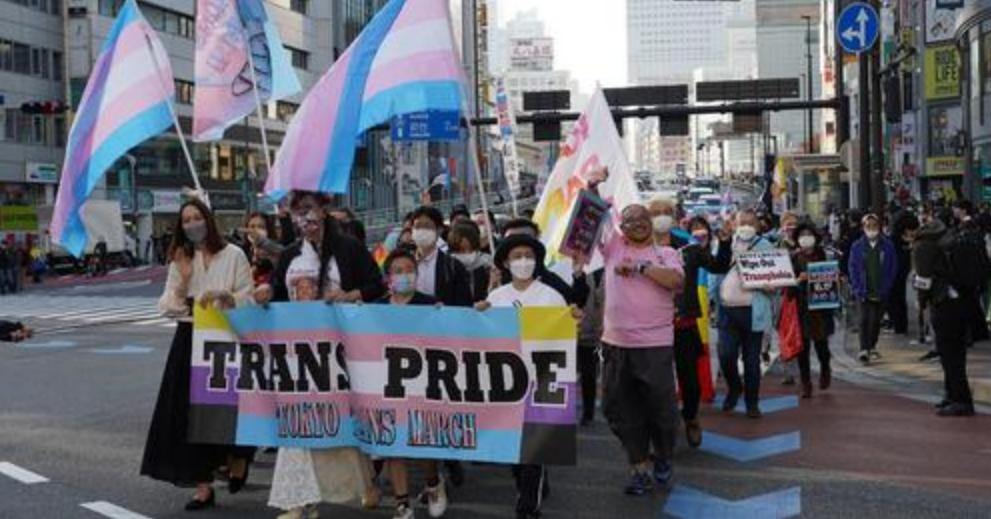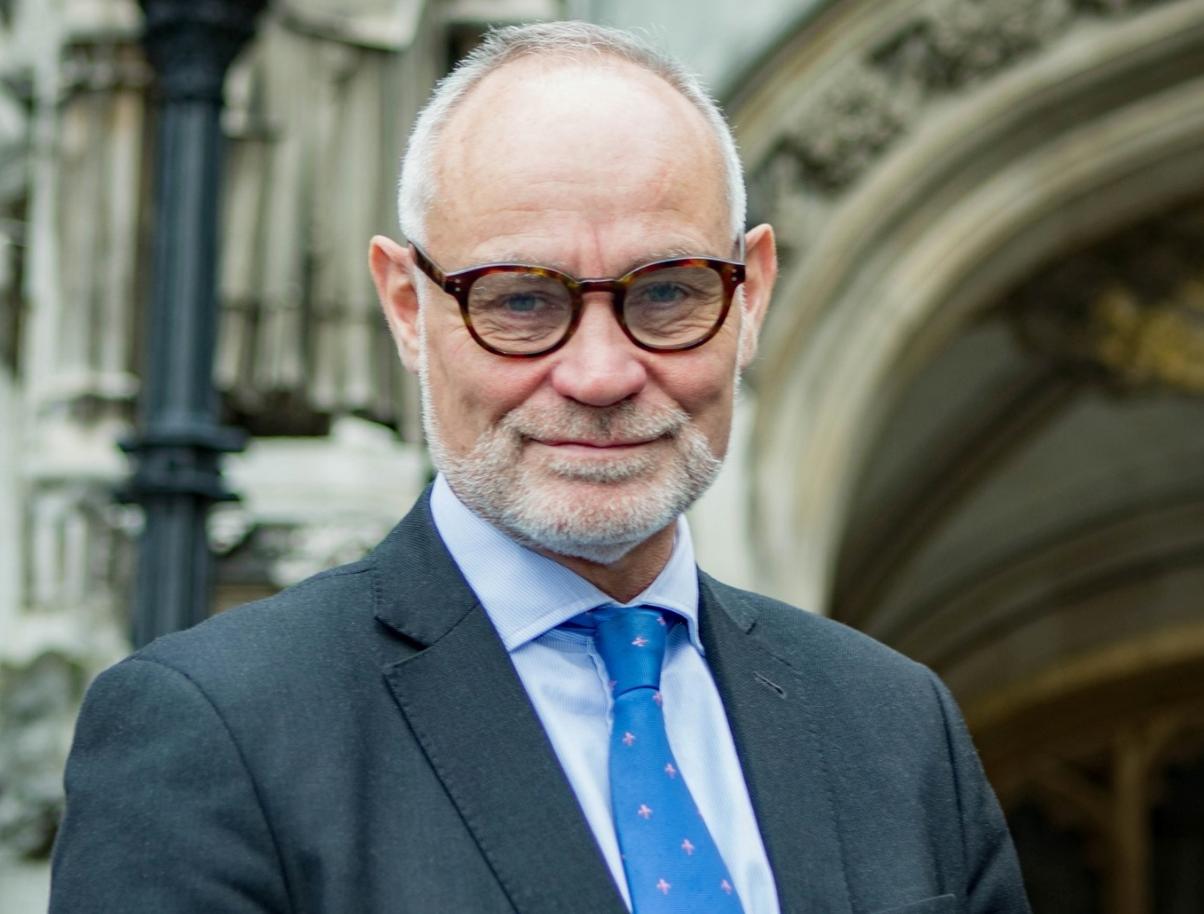World
Out in the World: LGBTQ news from Europe and Asia
South Korea court upheld criminalization of same-sex relations in the military

South Korea

This past week on Oct. 27, the second highest court in South Korea upheld an earlier ruling for the fourth time, the Military Criminal Act, that criminalizes same-sex relations in the military.
The Constitutional Court of South Korea, in a 5-4 vote, ruled that article 92-6 of the military criminal act was constitutional. Justices in their ruling stated that same-sex activities might undermine discipline and harm the combat capabilities of the military. Same-sex activities between civilians however, is not a crime.
Article 92-6 of the Military Criminal Act (“Article 92-6”) provides that a person who commits anal intercourse or any other indecent act with “a military person” shall be punished by imprisonment for not more than two years.
Human rights activists have noted that the South Korean military has invoked Article 92-6 to punish sexual acts between male servicemen with sentences of up to two years in prison — regardless of whether the acts were consensual or whether they happened within or outside of military facilities.
Several of South Korea’s allies including the U.S. and the U.K. have repealed provisions similar to Article 92-6 of the Military Act of South Korea in order to align with international obligations to protect against the discrimination of LGBTQ people.
The executive director of the Center for Military Human Rights Korea, which provides legal assistance to soldiers including those accused of breaking the anti-sodomy law, Lim Tae-hoon said the decision was “absurd, illogical, regressive and driven by prejudice.
“While the world has been making progress in abolishing discrimination against minorities over the past 20 years, the minds of the judges have not advanced even a single step,” he added.
Lim pointed out that: “this law can be abused at any time to harass many sexual minority soldiers due to their sexual orientation. In addition, among the constitutional appeal cases supported by the Military Sexual Violence Counseling Center affiliated with the Military Human Rights Center, there is one case in which the military prosecutors believed the words of the perpetrator of same-sex sexual violence and suspended indictment by claiming that the sexual intercourse was consensual with the victim.
“The perpetrator was sentenced to three years in prison by the final ruling of the Supreme Court and is currently serving his sentence. Constitutional Court judges argue that the law of indecent assault should remain in place to protect victims of same-sex sexual violence in the military, but in reality, it is being abused as a means of imprisoning and punishing victims. Without understanding how the world works or how the law operates, they were caught up in prejudice and stubbornness and made regressive decisions.”
Japan

Last week on Oct. 25, Japan’s highest court ruled in a unanimous decision that the country’s law mandating sterilization surgery for transgender people as a requirement for legal gender recognition was unconstitutional.
In the ruling, the 15 justices wrote: “Being forced to undergo sterilization surgery … constitutes a significant constraint on freedom from invasive procedures” in violation of the Japanese Constitution.
Human Rights Watch Japanese Director Kanae Doi noted that since 2004, trans people in Japan who want to legally change their gender must appeal to a family court. Under the Gender Identity Disorder Special Cases Act, applicants must undergo a psychiatric evaluation, be surgically sterilized, and “have a physical form that is endowed with genitalia that closely resemble the physical form of an alternative gender.” They also must be single and without children who are younger than 18.
In May 2023, the Supreme Court ruled in favor of the right of a trans woman government employee to use the restrooms in accordance with her gender identity. In November 2022, the government in Japan’s Kanagawa prefecture awarded another trans woman workplace compensation after recognizing her depression was the result of harassment she faced from her supervisor.
Earlier this month, a local family court ruled in favor of a trans man, Gen Suzuki, who requested to have his gender legally changed without undergoing the surgery, the BBC reported.
The family court judge, Takehiro Sekiguchi, said the current law violated Article 13 of the constitution that stipulates all people shall be respected as individuals.
According to the Japanese government’s statistics, sexual minorities (LGBTQ) make up for 3 to 8 percent of the population and that at most, the statistics estimate that around 0.7 percent of the population is trans.
They are an overwhelming minority. The overwhelming majority of people do not know about trans people, and various prejudices are widespread.
The “LGBT Understanding Promotion Act,” which was passed by the Japanese Parliament in June 2023, includes the sentence “we will take care to ensure that all citizens can live their lives with peace of mind,” but according to Japanese trans activist Aya Nishida, the background to this is “If you say you are a woman at heart, you are a man. This is because some people have discriminatory views such as, “If transgender people’s human rights are recognized, women’s human rights will be threatened.”
Nishida provides training on the human rights of trans people to local governments, about issues surrounding trans people.
While the Supreme Court has ruled against the sterilization requirement, it has asked a lower court to review the requirement to have “genitalia that closely resemble the physical form of an alternative gender.”

As of Oct. 1, 26 local governments in at least 12 prefectures across the country have enacted ordinances that codifies the prohibition of “outing,” which is the act of disclosing a person’s sexual orientation or gender identity without their consent.
According to a study conducted by the Research Institute of Local Government in Tokyo, these efforts highlights that some municipalities have made to protect the human rights of LGBTQ people since passage of the Act to Promote Understanding of LGBT and Other Sexual Minorities by Parliament this past June. That does not explicitly prohibit acts such as outing.
According to human rights groups and LGBTQ advocacy organizations, outing constitutes a serious human rights violation and it was defined as a form of abuse of power in the guidelines for legislation.
The Kyodo News reported that in July this year, it was disclosed that a man had been deemed eligible for compensation from his employer by a Tokyo labor office last year after his boss revealed he was gay without his consent, but the current law is limited in scope to the workplace.
The harmful consequences of outing hit the national consciousness in 2015, when a graduate student of Hitotsubashi University in Tokyo died after plunging from a school building in an apparent suicide after being outed as gay.
In the wake of that incident, the city of Kunitachi, which hosts the university, became the first local government to enforce an ordinance banning the outing of LGBTQ people in April 2018.
In a statement to media outlets in Japan, Yuichi Kamiya, the executive director of the LGBT Law Federation said:
“Outing is considered harassment and must be prevented in the workplace, but there are no laws in place for other settings such as schools and medical care, so it is difficult to know what constitutes it and what specific details are required. There is still not widespread understanding of how to respond.
It is important to clearly state the prohibition in ordinances, and it can also lead to public awareness, prevention and relief in the event of damage. The more discriminatory the environment surrounding the person concerned, the greater the impact of outing. Further awareness is needed in each field to prevent further damage. When someone comes out, the first thing you should do is ask them who they can talk about and how much they can talk about. If you have any concerns, please consult with a specialist who respects confidentiality obligations.”
Currently, none of the ordinances passed across Japan have criminal law penalties.
Hungary

The far-right anti-LGBTQ government of Hungarian Prime Minister Viktor Orbán has banned children under the age of 18 from visiting the World Press Photo exhibition Hungarian National Museum in Budapest, citing LGBTQ content in some of the photos.
Since taking power, Orbán and his ruling party have waged an unceasing campaign to restrict the rights of LGBTQ Hungarians. In July 2021, the government passed a law that bans the promotion of homosexuality and sex-reassignment surgery to minors in the country.
This past summer Hungary’s second-largest bookstore chain was fined for violating the 2021 law that limits the access of minors to books, media content and advertisements that “promotes or portrays” the so-called “divergence from self-identity corresponding to sex at birth, sex change or homosexuality.”
The chain was fined for selling copies of British author Alice Oseman’s LGBTQ graphic novel series “Heartstopper,” a global phenomena due to the runaway hit Netflix show based on her books in the series.
According to the interpretation of the Háttér Society, a Hungarian organization focused on LGBTQ rights, a parent could break the law solely by buying a child a young adult novel that features an LGBTQ character.
Reuters reported that this past Saturday, the museum stopped selling tickets for the photo exhibition for youngsters after the far-right Our Homeland party had initiated a government inquiry, the party said.
“Based on the initiative of Mi Hazank, youngsters under 18 cannot visit the exhibition at the National Museum as it violates the child protection law,” the far-right party told state news agency MTI. The new rule was posted on the museum’s website later on Saturday.
Neither the museum nor the Our Homeland party responded to requests for comment.
The Vatican

The month-long conference held in the Paul VI Hall at the Vatican regarding the future of the world-wide Roman Catholic Church ended on Saturday, without a clear course of action for the church on the issues of ordaining women as deacons or the treatment and care for its LGBTQ members.
The gathering, known as a Synod of Bishops, followed an unprecedented two-year canvassing of rank-and-file Catholics. The 365 synod participants included 300 bishops along with lay men and about 50 women who were mostly lay people, Reuters reported.
At the synod, the pope gave women and lay people a vote on church affairs for the first time. The participants meet for a final session in a year, then the pope will write a document on issues facing the church.
A 41-page report, approved and published Saturday at the close of the conference, called for the results of earlier papal and theological commissions on women deacons to be presented for further consideration at the next assembly of the Synod of Bishops, to be held in October 2024.
The report, titled “A synodal church in mission,” did not take a stand on LGBTQ issues despite discussion beforehand that the synod might call on the church to be more welcoming to the LGBTQ community, Reuters reported.
During a press briefing after the publication of the final report, Cardinal Mario Grech, who heads the Vatican’s synod office, on a question regarding LGBTQ Catholics, said that the assembly felt a need to “respect everyone’s pace.” He added: “It doesn’t mean if your voice is stronger it will prevail.”
Jesuit Fr. James Martin, a popular spiritual author and editor of the LGBTQ Catholic publication Outreach who took part in the synod as a voting member, told the National Catholic Reporter he was “disappointed but not surprised” by the result for LGBTQ Catholics.
“There were widely diverging views on the topic,” said Martin. “I wish, however, that some of those discussions, which were frank and open, had been captured in the final synthesis.”
United Kingdom

Crispin Blunt, the openly gay Conservative MP for Reigate was arrested in connection with an allegation of rape and possession of a controlled substance earlier this month at his home in Horley by the Surrey Police.
Blunt, served for two years as a justice minister and two years as chair of the Foreign Affairs Committee in the House of Commons, publicly came out as gay in 2010, announcing that he had separated from his wife and was “coming to terms with his homosexuality.”
British media outlet The Telegraph reported Blunt claimed in a statement that Surrey Police had begun an investigation three weeks ago when he reported “concerns over extortion.” The Conservative Party confirmed on Thursday night the 63-year-old has been stripped of the party designation, effectively meaning he has been expelled from the Conservative Party. He will now sit in the House of Commons in Parliament as an Independent member.
Taking to X, formerly Twitter, Blunt posted a statement saying, “The fact of the arrest requires a formal notification of the speaker and then my chief whip.
I have now been interviewed twice in connection with this incident, the first time three weeks ago, when I initially reported my concern over extortion. The second time was earlier this morning under caution following arrest.”
“The arrest was unnecessary as I remain ready to cooperate fully with the investigation that I am confident will end without charge,” Blunt continued. “I do not intend to say anything further on this matter until the police have completed their inquiries,” he added.

The Welsh government appears to be setting itself on a potential collision course with Prime Minister Rishi Sunak’s government after the leak of a draft of the Welsh government’s Gender Quotas Bill Sunday evening, which would allow people to self-identify their gender when running for the Welsh Parliament.
The Telegraph reported that the bill proposes plans for a gender-balanced Parliament by having set equal quotas for male and female political candidates. Under this draft bill, the definition of a woman will be updated, so that the female quota of party candidates running for office may include trans women.
The definition further stated that trans meant “a person who is proposing to undergo, is undergoing or has undergone a process (or part of a process) for the purpose of reassigning [their] sex to female by changing physiological or other attributes of sex.”
Reaction from transphobic opponents included an outspoken “gender critical” leader, Cathy Larkman from Women’s Rights Network Wales, who said in an emailed statement:
“We know from bitter experience that Welsh government is not listening to the concerns of women in Wales. We, along with other groups, have been shut out time and again. Unfortunately, the reasons for this are now apparent.
The government is now intent on driving a highly contested ideological agenda and this is clearly their first step. It is astonishing that the government is spending public funds and using a Gender Quotas Bill to promote an agenda which undermines the rights of half the population of Wales.
It is shameful that they are high-jacking legislation that should benefit women and increase female participation in political life, to embed a toxic and misogynistic ideology. We believe that the intention of the Welsh government is to introduce gender self-identification and put it on a statutory footing.
We believe this is the first step towards a full self-ID bill which would have serious implications for women and girls in particular as it would impact on single-sex services and spaces such as changing rooms, intimate care, hospital wards and domestic violence services.
It is unforgivable that the first minister and his government, aided and abetted by Plaid Cymru [a political party] intend to betray the women of Wales in this underhand way.”
PinkNewsUK noted that this bill echoes a similar plan put forward by the Scottish government in January that would have made it easier for people to legally change their gender, which was blocked by the UK government.
The leak has had a mixed response from the public. While the trans community and its advocates are pleased with the progressive step forward, anti-trans hate groups and so-called women’s rights groups are up in arms.
Commenting on the leaked bill, a spokesperson for the Welsh government told the Telegraph that it did not represent the latest version of the Gender Quotas Bill, though they did not say whether that had to do with the redefinition of women.
“Our proposed model for quotas is designed to maximize the chances of achieving a Senedd comprised of at least 50 percent women. Work is ongoing on the bill,” said the spokesperson.
The first minister of Wales, Mark Drakeford, has been a longtime defender of trans rights, and has repeatedly shared his pro-trans beliefs in Parliament, PinkNewsUK also reported.
Additional reporting by the Kyodo News, the BBC, Reuters, Agence France-Presse, the Telegraph and PinkNewsUK
Africa
Report: Anti-LGBTQ discrimination has cost East African countries billions
Open for Business highlights Kenya, Uganda, Tanzania, and Rwanda

The economies of four East African countries are losing more than $5 billion a year because of discrimination against LGBTQ people.
The 80-page report that Open for Business, a coalition of leading global organizations that champion LGBTQ inclusion, released in late March focuses on Kenya, Uganda, Tanzania, and Rwanda. It attributes the losses to anti-homosexuality laws, and predicts more economic costs if lawmakers implement other harsh anti-LGBTQ measures.
The report notes Uganda is losing $2.4 billion, or 5.2 percent of its GDP, annually because of the Anti-Homosexuality Act that took effect in 2023. Open for Business last October revealed the country had already lost $1.6 billion in foreign direct investment, donor aid, trade, tourism, public health and productivity after President Yoweri Museveni signed the law.
Kenya is losing $1.5 billion, or 1.38 percent of its GDP.
The report warns that enacting the pending Family Protection Bill would cost the country an additional $6.3 billion, or 5.8 percent of its GDP, annually. Opposition MP Peter Kaluma, who has introduced the measure, in January claimed the Biden-Harris administration had blocked it and vowed to have fellow MPs pass it after U.S. President Donald Trump’s inauguration.
Kaluma is a strong supporter of Trump and the Republican Party’s opposition to LGBTQ rights and other far-right conservative ideologies.
Tanzania is losing $1.1 billion, or 1.33 percent of its GDP, because of anti-LGBTQ discrimination. Rwanda is losing $45 million, or .32 percent of its GDP.
Homosexuality is not illegal in Rwanda unlike the other three countries, but consensual same-sex sexual relationships remain taboo. Queer Rwandans also face stigma, discrimination, social exclusion, and arbitrary detention.
“A series of private member bills in Uganda, Kenya, and Tanzania have threatened to pull the region back in terms of progress and human rights for LGBTQ+ people, and damage both the ease of doing business and their international reputation,” states the Open for Business CEO Dominic Arnall.
Arnall notes his organization’s extensive engagement with businesses across East Africa over the last five years has always linked harmful anti-LGBTQ laws to impacts on a country’s investment prospects.
“The finding lays bare an uncomfortable truth: That laws that harm the LGBTQ+ community are standing in the way of prosperity and growth for all citizens in the region,” he said.
The report calls for LGBTQ inclusion as part of the region’s broader economic development agenda.
The Open for Business report notes anti-gay violence and discrimination in Tanzania has been on the rise since the late-President John Magufuli came to power in 2015. The country’s punitive anti-homosexuality law with a 30-year prison sentence for consensual same-sex sexual relations was already in place, but queer Tanzanians were generally not systematically targeted.
“Reporting of neighbors or community members for suspected homosexuality is frequent and law enforcement officers have been known to pose as members of the LGBTQ+ community to entrap and blackmail LGBTQ+ individuals,” states the report.
It also notes the Tanzanian government’s crackdown on websites and social media accounts that promote LGBTQ rights and threatening the arrests of administrators who allow such content. The report concludes this suppression has caused queer people to live in fear and isolation.
Religious organizations, particularly Christian churches in Tanzania, also champion anti-LGBTQ rhetoric by encouraging their followers against tolerating homosexuality and transgender people. Politicians, meanwhile, use anti-LGBTQ narratives to gain support during campaigns.
While Rwanda stands out as the only East African country in which homosexuality is not criminalized and has foreign donors implementing programs that target the queer community, discussing LGBTQ rights in public is rare and same-sex relationships are not legally recognized. The Open for Business report notes this situation creates legal ambiguity and a fragile social environment for queer Rwandans.
“Several LGBTQ+ rights organizations have emerged in recent years, mostly in Kigali, although they do not always identify themselves as LGBTQ+ associations and are rarely formally registered, making it difficult for them to receive funding,” reads the report.
The Rwandan government has rejected calls to criminalize homosexuality, which it considers a “private matter.” It has also been adamant against efforts to protect queer people for fear of domestic opposition and a desire not to politicize the issue like in neighboring countries.
Kenya, like Rwanda, has for a long time been considered more receptive of queer people, “as long as LGBTQ members are not ‘too loud.’”
Anyone convicted under Kenya’s colonial-era sodomy law could face up to 14 years in prison. Efforts to enact a harsh anti-homosexuality law and anti-LGBTQ protests that religious leaders, politicians, and activists have organized have increased homophobia in the country.
“LGBTQ individuals report significant difficulties in securing formal employment, which pushes many of them into more precarious livelihoods in the informal sector,” states the report.
Trinidad and Tobago
Trinidad and Tobago recriminalizes homosexuality
Court of Appeal on March 25 overturned 2018 ruling

An appeals court in Trinidad and Tobago has recriminalized consensual same-sex sexual relations in the country.
Jason Jones, an LGBTQ activist from Trinidad and Tobago who currently lives in the U.K., in 2017 challenged Sections 13 and 16 of the country’s Sexual Offenses Act. High Court Justice Devindra Rampersad the following year found them unconstitutional.
The country’s government appealed Rampersad’s ruling.
Court of Appeal Justices Nolan Bereaux and Charmaine Pemberton overturned it on March 25. The Daily Express newspaper reported Justice Vasheist Kokaram dissented.
“As an LGBTQ+ citizen of Trinidad and Tobago, this regressive judgement has ripped up my contract as a citizen of T&T and again makes me an unapprehended criminal in the eyes of the law,” said Jones in a statement he posted to social media. “The TT Court of Appeal has effectively put a target on the back of LGBTQIA+ people and made us lower class citizens in our own country.”
Antigua and Barbuda, St. Kitts and Nevis, Barbados, and Dominica are among the countries that have decriminalized consensual same-sex sexual relations in recent years.
The Inter-American Commission on Human Rights in 2021 issued a decision that said Jamaica must repeal its colonial-era sodomy law. The Jamaican Supreme Court in 2023 ruled against a gay man who challenged it.
A judge on St. Vincent and the Grenadines’s top court last year dismissed two cases that challenged the country’s sodomy laws.
Jones in his statement said he “will be exercising my right of appeal and taking this matter to the” Privy Council, an appellate court for British territories that can also consider cases from Commonwealth countries.
King Charles III is not Trinidad and Tobago’s head of the state, but the country remains part of the Commonwealth.
“I hope justice will be done and these heinous discriminatory laws, a legacy of British colonialism, will be removed by the British courts,” said Jones.
United Nations
Trump pulls Elise Stefanik’s UN ambassador nomination
Republicans have slim majority in US House of Representatives

President Donald Trump on Thursday withdrew U.S. Rep. Elise Stefanik (R-N.Y.)’s nomination to become the next U.S. ambassador to the U.N.
The Associated Press noted Trump in a Truth Social post said it was “essential to maintain every Republican seat in Congress.”
Republicans currently have a narrow 218-213 majority in the U.S. House of Representatives. Special elections to fill the seats that National Security Adviser Mike Waltz and former U.S. Rep. Matt Gaetz (R-Fla.) vacated when they joined the Trump-Vance administration and resigned respectively will take place on April 1 in Florida.
“Elise Stefanik is truly a great leader and a devoted patriot,” said House Speaker Mike Johnson (R-La.) in a statement. “Today’s selfless decision shows America what those of us who work with her already know. She is deeply devoted to her country and fully committed to see President Trump’s agenda succeed in Congress.”
“It is well known Republicans have a razor-thin House majority, and Elise’s agreement to withdraw her nomination will allow us to keep one of the toughest, most resolute members of our conference in place to help drive forward President Trump’s America First policies,” he added. “There is no doubt she would have served with distinction as our ambassador to the United Nations, but we are grateful for her willingness to sacrifice that position and remain in Congress to help us save the country.”
Stefanik, 40, has represented New York’s 21st Congressional District since 2015. She later became chair of the House Republican Conference.
Stefanik in 2019 voted for the Equality Act, but she opposed it in 2021. Stefanik in 2022 is among the dozens of Republicans who voted for the Respect for Marriage Act that then-President Joe Biden signed.
Stefanik, among other things, has also been outspoken against antisemitism on college campuses.
Trump has not said who he will nominate to become U.N. ambassador. Johnson in his statement said he will “invite her to return to the leadership table” of the House Republican Conference “immediately.”
-

 Virginia5 days ago
Virginia5 days agoFairfax County School Board issues Trans Day of Visibility proclamation
-

 National2 days ago
National2 days agoDestination Tomorrow works to empower LGBTQ community
-

 Maryland2 days ago
Maryland2 days agoAt transgender visibility celebration, Moore called out for lack of action
-

 Congress5 days ago
Congress5 days agoChris Pappas reportedly planning run for US Senate












